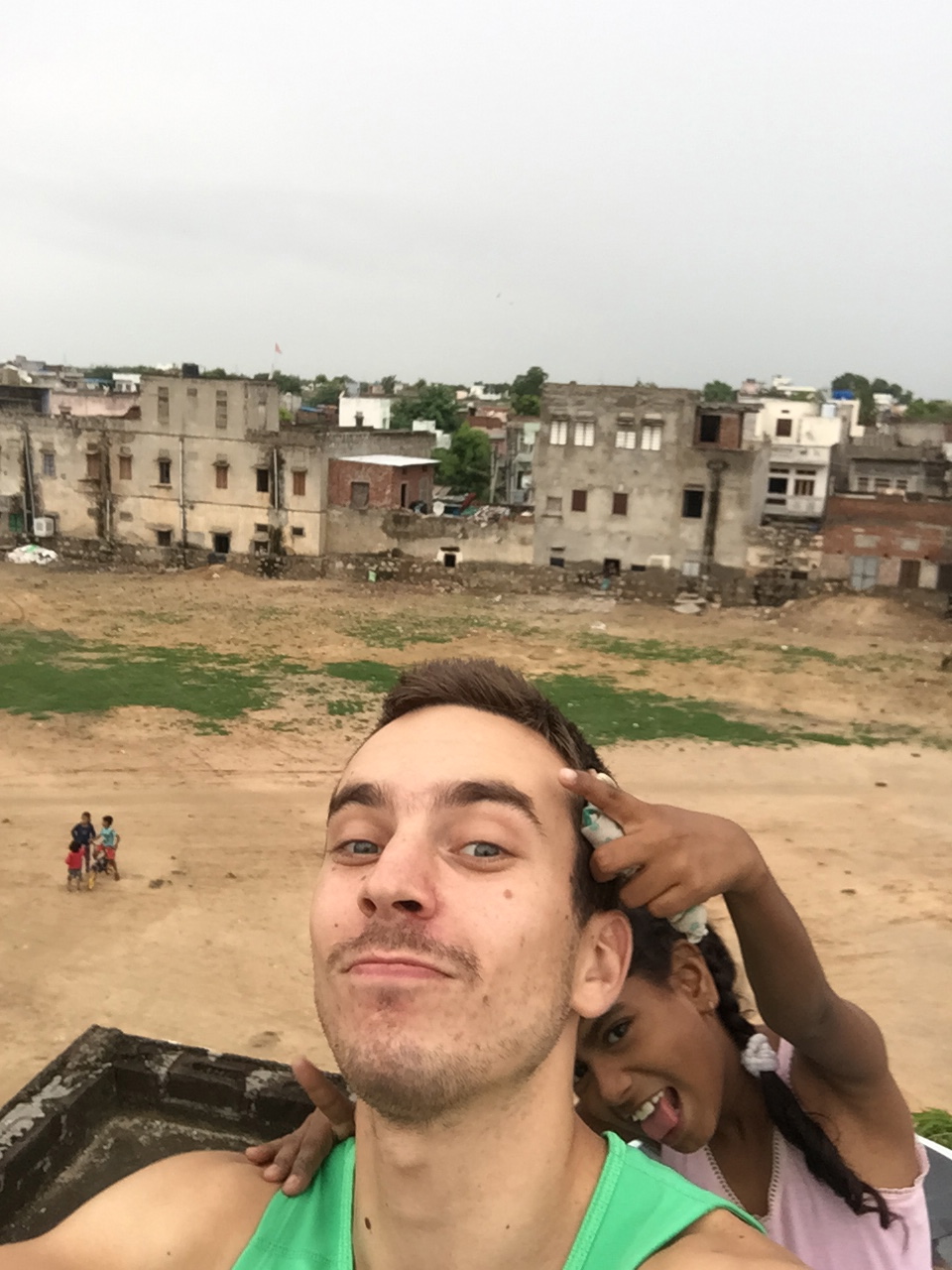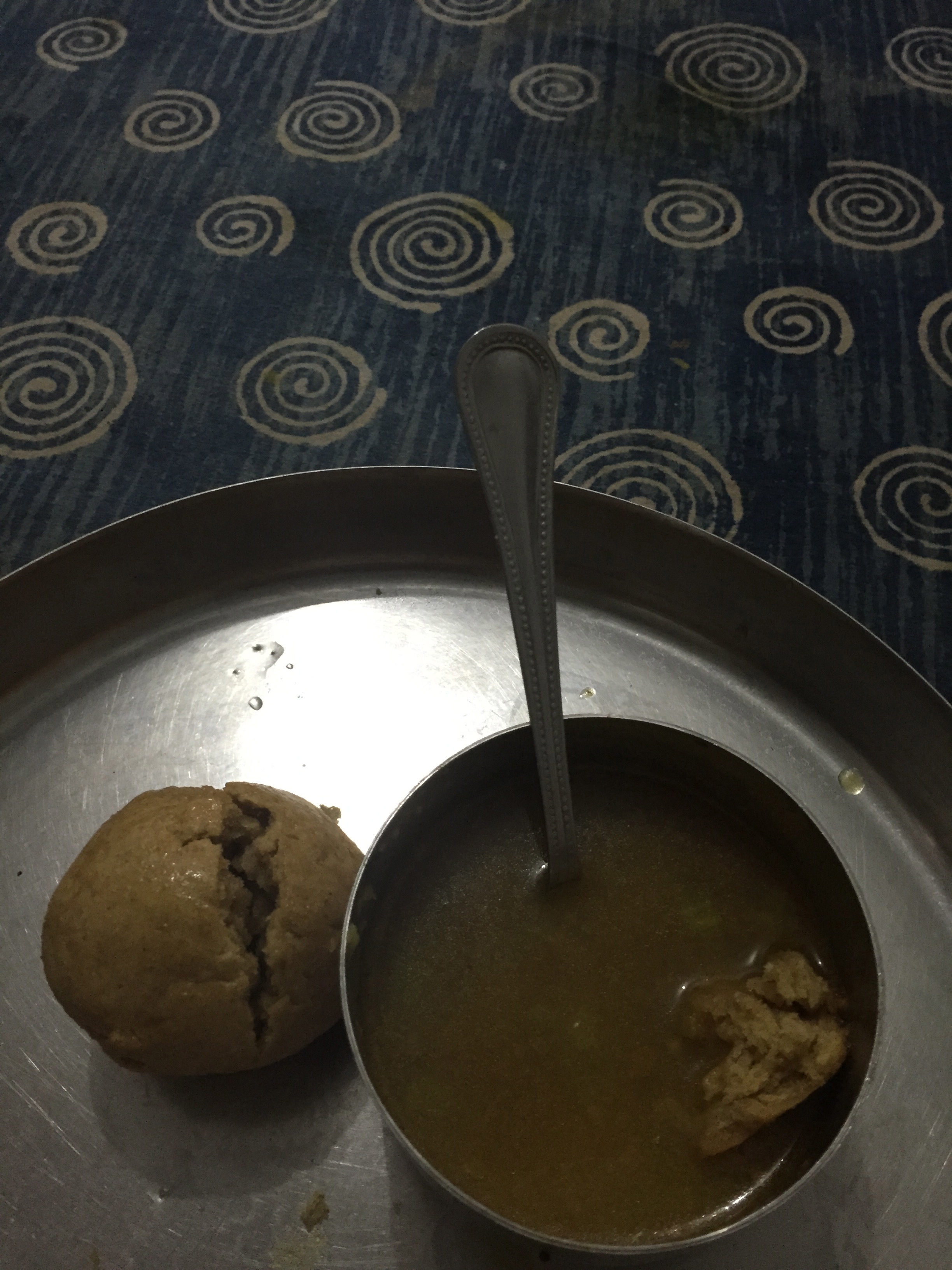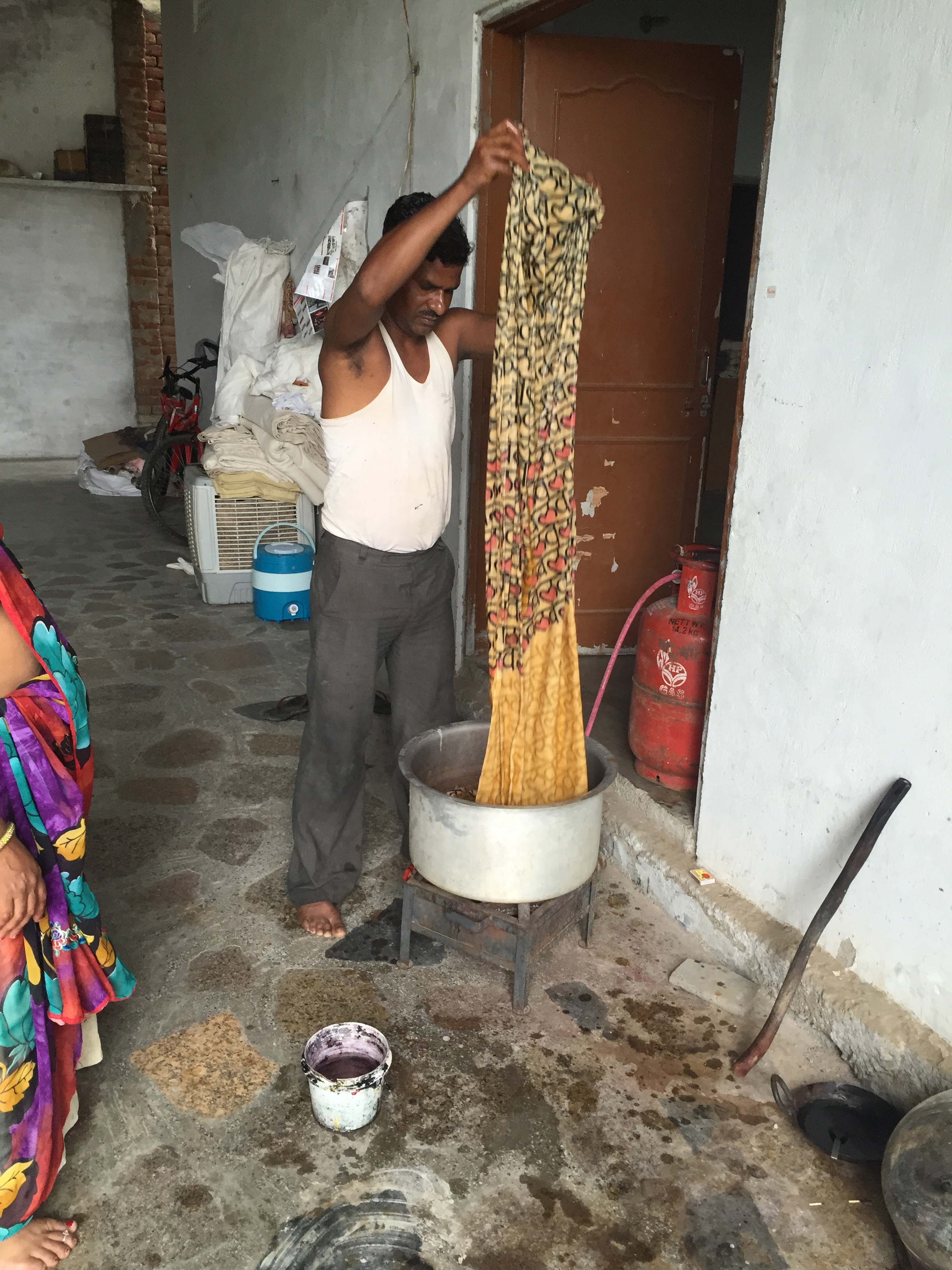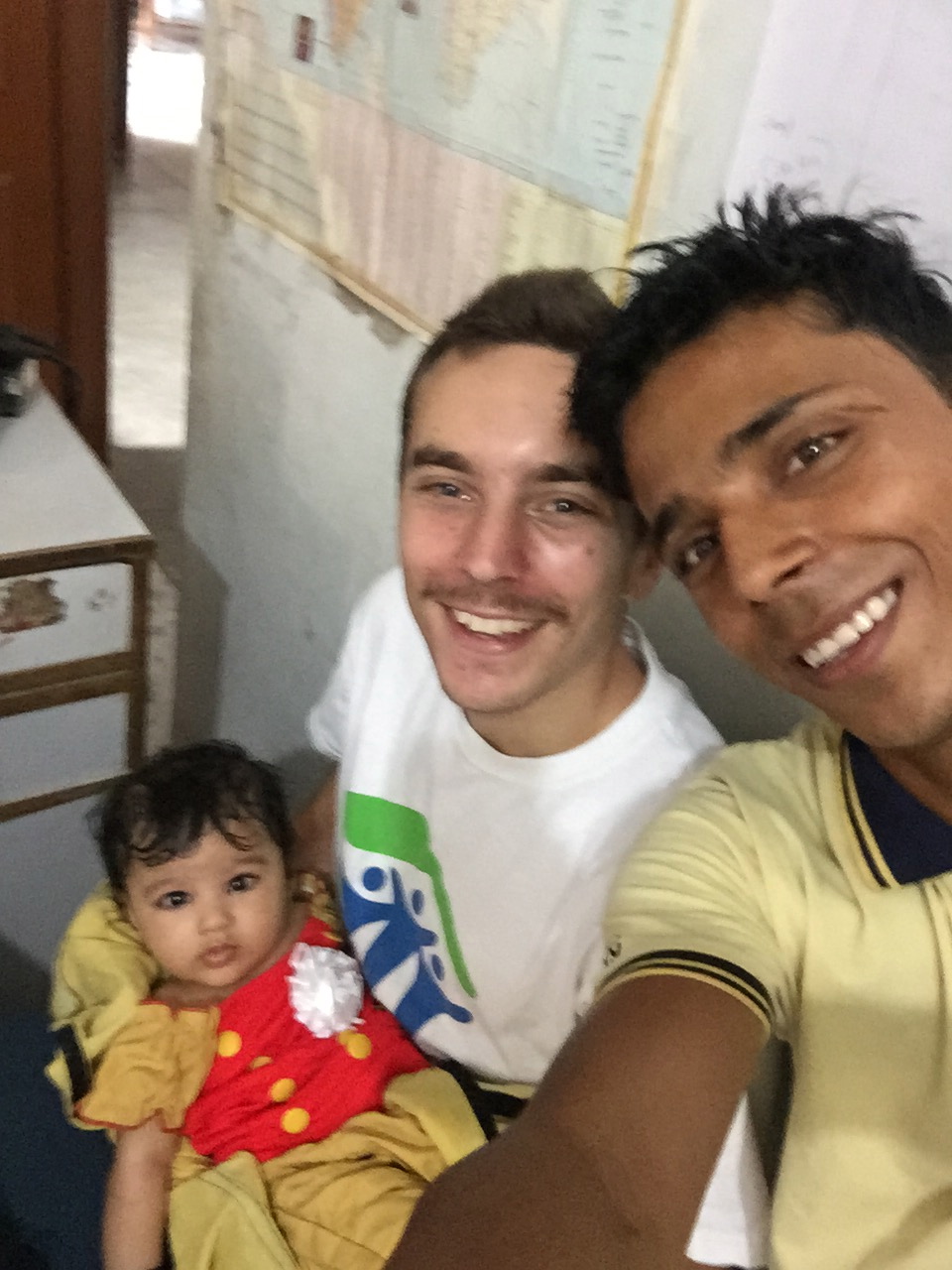Every morning I go to temple with Vijendra.
Before I begin Part II of this post, I need to address a notable aspect about Indian travel.
Before I left for India, many people asked me if I will come back “all spiritual,” “awakened,” or a “yogi.” What the heck does that mean?
Many people travel to India for a spiritual experience. I can see why. There is something special about this place, no doubt. The familial bond between friends, the color, the sublime shrewdness of the everyday citizen.
But, many people look for quick fixes – whether it be a seven day meditation retreat or backpacking across the country. I’m in no position to say this stuff doesn’t work, but instead offering an insight: one cannot simply travel to India to fix their problems. This place has healing power, but you must first find what you are trying to heal within yourself before you can even digest the healing. Nothing is earned without effort. One must get lost in India before knowing what to look for; yes, I’m still lost – and that’s okay.
There is a process for everyone. If you are looking for a spiritual experience in India, I’m not sure what that even means, but I’ll go ahead and support it. However, there must be a paramount understanding that the process does not begin and end within the borders of this country.
Religion undoubtedly plays a crucial role here in Bagru. I recently read that Hinduism is not just a religion, but more of a system of tradition, ritual, and lifestyle. It dictates how people live, and as a result, it is dictating how I am living.
Religion is a bottomless tomb that can be debated for eternity, we all know that. Nonetheless, one thing has been glowingly transparent during my time here in India:
When I enter any temple in India I am not stared at. It’s the only place nobody looks at me. A quick glance, maybe, but I’m not even sure they realize I’m a white guy wearing shorts and a Union t-shirt. There is no judgement, no accusation, no disheartened stares thrown my way.
Sometimes during my meditation I will open my eyes and there will be an Indian man no more than six inches from me, and the rest of the room is empty; his eyes are closed, fully focused, and he couldn’t care less if I’m a young Jewish kid or an elephant. Respect trumps all.
A short aside on meditation: I have no idea what I’m doing. I mostly attend temple with Vijendra out of curiosity and because it clears my head before work. Yet, when I try to clear my mind I immediately have visions of my family, a donut, my dog, and my morning tea. For those of you with any meditation experience you will know how hard it is to “recognize the thought” of the itch on your foot, tickle in your throat, or sweat on your brow – and “move on from that thought.” Now, imagine sitting in a boiling hot room and falling victim to a full-on assault by the flies of Bagru. They are little demons buzzing in my ear, landing on my damp neck and resting on my earlobe. Moral of the story: apply copious amounts of bug-spray before meditating in a Bagru temple.
My primary purpose here in Bagru is to work, while simultaneously helping a community that can benefit from my skills (still trying to identify those). The community that I happen to live in is deeply embedded in Hinduism, thus making my job extensively interconnected with this spiritual and religious mentality.
For now, I get stares – for the most part. What are they looking at? They’re looking at a guy who is finding his way. He’s lost, for sure, but he’s figuring it out.
And you can always stare back.















